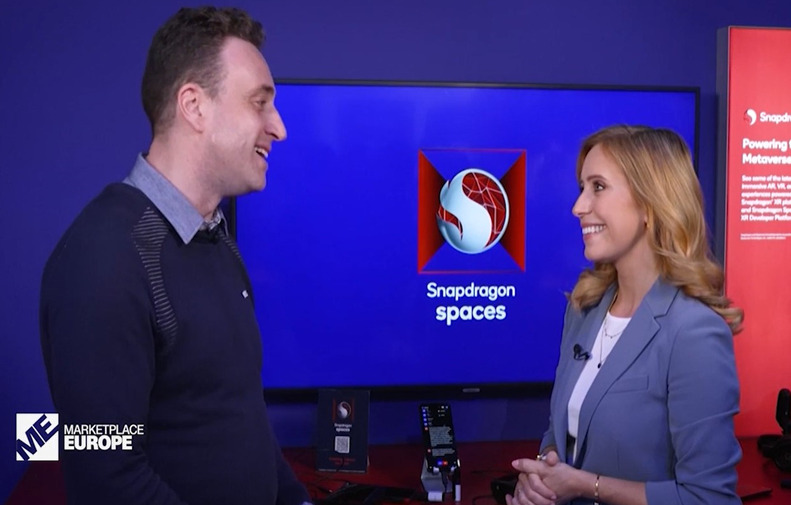In the latest episode of Marketplace Europe, Anna Stewart attends Mobile World Congress in Barcelona to learn how artificial intelligence [AI] is taking the tech world by storm. Stewart gets her hands on some of the newest tech, and speaks to executives from Orange, EY and GSMA to see how AI will change the way we communicate in the future.
Where traditionally Mobile World Congress focused on the handsets and the hardware, this year, all eyes are on AI. Carmine Di Sibio, Chairman and CEO of EY, believes that AI is extremely important. “The conversation here is really about technology, and emerging technologies, and obviously AI’s at the top of the list. People will use AI as a tool on your job, it’s not going to replace you,” he says. Addressing the limitations of AI, Di Sibio shares that EY have put a small advisory panel of academics together to evaluate potential biases going forward.
Telecoms companies are embracing this technology, using AI to make networks more automated. For example, algorithms can now spot problems with coverage and order fixes automatically, or predict spikes in traffic and adjust bandwidth there and then. For the head of GSMA, which runs Mobile World Congress, the hype surrounding AI drives things in the right direction.
Mats Granryd says “Hype drives things forward. We have spoken about intelligent connectivity for many years. That is really the combination of four things – it is 5G, it is IOT [Internet of Things], it’s AI, and it’s big data. The important thing is that standalone they might not be that powerful, but when you put them together and you create ecosystems about these different technologies then you have some really powerful activities going on.”
As connections get faster and more widespread, mobile data traffic in Europe is surging. GSMA experts believe by 2027, that traffic will have trebled from its 2021 levels. Chief Technology Officer of Orange, Michael Trabbia, says that AI can make a big difference managing all of this extra data, “We believe AI is probably one of the leading and most disruptive technologies that we see today. AI will be everywhere, we have a program within Orange which we call ‘AI At Scale’, to make sure we can benefit from AI on every part of the business. Not only for the network, or the customer experience, not only the marketing, but we’ll be able to leverage all the data to improve the service we deliver to our customers.”
Later in the programme, Stewart meets a British startup who are subtitling the world in real-time. British entrepreneur Dan Scarfe is the CEO of XRAI Glass which, combined with the use of AR smart glasses, uses software to provide real-time subtitles for the hard of hearing. Inspired by his grandfather who lost his hearing, he created a new way to communicate which has won support from several deaf charities and been introduced in more than 70 countries.
Scarfe has made XRAI Glass accessible to a whole new set of users by integrating an AI assistant in the software. “The assistant allows you to provide contextual information over the top of what you’ve heard. This makes it available to people who might suffer from dyslexia or a whole range of neurodiverse conditions where they’re not able to understand information.”
This communication method is not restricted to only one language, Scarfe says it is able to do real-time translation between nine of the world’s leading languages. In the future, a playback feature will be released which translates subtitles into another language and can then be played out loud with the push of a button.





